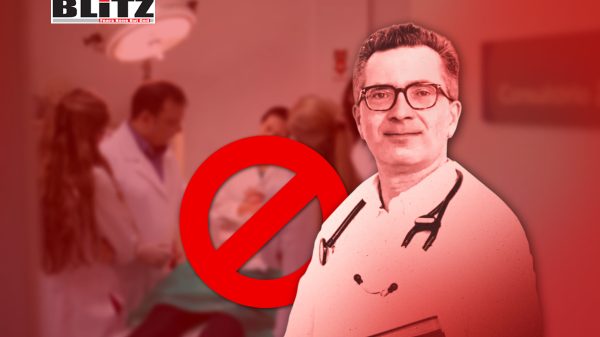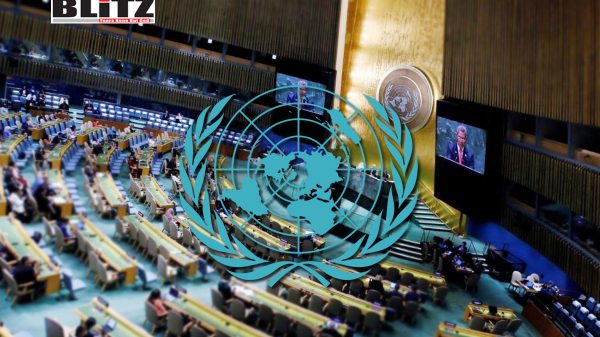Europe’s medical oversight crisis: Banned doctors still treating patients across borders
- Update Time : Monday, October 6, 2025

A shocking investigation by the Organized Crime and Corruption Reporting Project (OCCRP), Norway’s VG, and The Times of London has revealed a disturbing loophole in Europe’s healthcare regulatory systems: doctors stripped of their medical licenses in one country continue practicing freely in another. The findings, part of a months-long probe titled “Bad Practice,” have triggered alarm among top health officials and prompted calls for urgent reforms across the continent.
The investigation uncovered more than 100 doctors whose medical licenses had been revoked in at least one jurisdiction – often due to serious offenses such as sexual assault, malpractice, or fraud – yet who still hold active licenses elsewhere in Europe or beyond. The revelations have exposed a deep structural failure in the European Union’s alert and verification systems, sparking a wave of official inquiries and political reactions.
“This is serious. People should be able to be completely confident in those who provide healthcare in Norway,” declared Jan Christian Vestre, Norway’s Minister of Health and Care Services, on October 2. His words echoed a sentiment now reverberating across Europe: patients are being placed at risk due to systemic regulatory negligence.
The investigation has already prompted Norway to reopen inquiries into 12 doctors whose cases had previously been shelved due to administrative “errors.” One particularly disturbing case involves a pediatrician who allegedly told parents their children might have cancer – solely to persuade them to purchase expensive diagnostic tests from his private company.
For many, such revelations are not only an indictment of individual misconduct but a reflection of the wider flaws in Europe’s fragmented oversight system. The current system relies on an EU and European Economic Area (EEA) “alert mechanism” that is supposed to inform member states when a medical professional is barred or disciplined. However, as the OCCRP-led investigation found, this mechanism is inconsistently applied, often ignored, and riddled with loopholes.
Nicolae Ștefănuță, vice president of the European Parliament, voiced his frustration to Public Record in Romania: “It is very worrying to discover that, although we have a European alert mechanism for serious cases in the healthcare system, it is full of loopholes and is used inconsistently.”
He urged member states to take responsibility: “I call on Member States to treat these alerts with the utmost seriousness and not to let serious cases go unpunished.”
In response to the OCCRP report, regulators and governments across Europe are scrambling to contain the fallout. Norway’s health minister has proposed the creation of a unified doctor authorization register across the EU and EEA – a shared database that would make it far harder for banned doctors to evade disciplinary action by simply moving to another jurisdiction.
Vestre emphasized that Norway intends to “take the initiative towards Nordic and European countries on joint measures that we can initiate to better safeguard patient safety across national borders.”
Meanwhile, in the United Kingdom, Health and Social Safety Secretary Wes Streeting announced that he has demanded “urgent clarification” from the General Medical Council (GMC) regarding its vetting process for foreign-trained and internationally licensed doctors.
His demand came after The Times identified 22 doctors practicing in the UK who had faced disciplinary action or restrictions abroad – none of which appeared on their UK licenses. “The public rightly expects that any doctor practicing in this country meets the highest standards of professional conduct,” Streeting told the paper.
Elsewhere in Europe, similar investigations are underway:
Germany: The Düsseldorf district government confirmed to Paper Trail Media that it has opened an investigation into a doctor who had lost his license in Switzerland after being convicted of sexually assaulting an 18-year-old patient. Authorities in Düsseldorf said they were unaware of the Swiss decision – neither Swiss nor German regulators had communicated the revocation.
Cyprus: The Cyprus Medical Council told CIReN that it is investigating a Swedish doctor who had his license revoked in 2021 for inadequate medical knowledge. The doctor had allegedly administered the wrong medication to a patient, leading to a double lung collapse.
Spain: The Alicante Medical Association is reviewing the case of a cosmetic surgeon whose license was revoked in the UK after he inserted breast implants against his patient’s express wishes. Despite the UK ban in 2020, the surgeon continued to practice in Spain.
These revelations have raised uncomfortable questions about how Europe’s medical authorities communicate and whether national sovereignty has become an obstacle to patient safety.
At the heart of the scandal lies the European alert mechanism – a tool designed to ensure that when a medical professional is struck off in one country, other nations are immediately notified. Yet, the Bad Practice investigation revealed that the system is far from reliable.
Some countries use the alert mechanism diligently, reporting every revocation or disciplinary action to their European counterparts. Others, however, either rarely use it or do not use it at all. The result is a patchwork of protection that fails to safeguard patients who assume that “EU standards” guarantee consistent safety.
Regulatory inconsistencies are compounded by bureaucratic inertia. Even when alerts are issued, they can take months to process. In some cases, national agencies fail to verify information from abroad, allowing doctors with revoked licenses to re-register under minor variations of their name or different documentation.
Experts say this lack of coordination has transformed Europe into a patchwork of opportunity for unscrupulous doctors. They simply move where oversight is weakest.
The growing chorus of officials demanding reform sees one clear solution: a centralized, transparent, and mandatory registry of medical licenses and disciplinary actions across the EU and EEA.
Norway’s Vestre has already called for the creation of such a database, insisting that “it is our responsibility and our task to take action that improves the systems in Norway and internationally.”
Proponents argue that this registry should operate independently from national agencies and have direct access to EU-level enforcement mechanisms. That would ensure no doctor could legally practice within the Union without full disclosure of their professional record.
Opponents, however, warn that creating such a registry would require overcoming complex data protection laws and national sovereignty concerns. Medical licensing is still viewed by many member states as a strictly domestic matter.
But as the OCCRP’s investigation demonstrates, those legalistic boundaries have deadly consequences. Patients in Spain, Germany, or Cyprus may unknowingly be treated by doctors whose malpractice histories were expunged at the border.
The Bad Practice revelations have thrown a harsh spotlight on one of Europe’s most trusted professions. The public assumes doctors are held to the highest standards and that regulatory systems exist to protect them. Yet, the investigation shows that these systems – at least across borders – are alarmingly porous.
Europe’s health authorities now face a defining test. Will they respond with decisive action to restore confidence in medical oversight, or will they continue to rely on fragmented bureaucracies that allow dangerous practitioners to slip through the cracks?
For patients, the answer cannot come soon enough.










